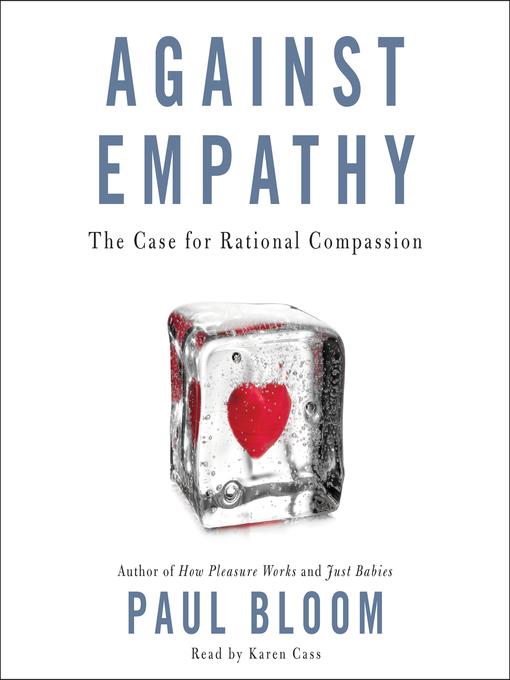
Against Empathy
The Case for Rational Compassion
کتاب های مرتبط
- اطلاعات
- نقد و بررسی
- دیدگاه کاربران
نقد و بررسی

Though listeners will need some patience to sort through the nuances of this philosophical broadside, narrator Karen Cass's affecting narration adds the dramatic flair needed to keep the action moving--even when the author's distinctions and arguments are challenging. Her confidence and appealing British diction provide the elegance needed to make Bloom's ruthless clarity digestible. The Yale professor says that empathy--feeling what others feel--is not a reliable way to make ethical decisions because it's subject to bias. Research shows it's more powerful toward individuals and small groups, people in dramatic situations, people who have familiar loyalties or noble values, and toward our own families and tribes. Bloom's discussion is a welcome reminder that emotional reactions can lead us down the wrong path if not examined with care. T.W. � AudioFile 2017, Portland, Maine

September 19, 2016
Psychologist Bloom (Just Babies) makes the provocative argument that empathy is not the vital catalyst for human morality it is thought to be, and that the impulse toward empathetic feelings should, in fact, be suppressed. The argument centers on empathetic bias, where people favor those they can more easily relate to, which in Bloom’s analysis leads to “parochialism and racism.” Furthermore, empathy often gets hijacked by individual political
persuasions, and its “spotlight” focus can bypass rational thought, ignoring important context. Bloom takes aim at scientific claims about “mirror neurons” supposedly linked to empathetic thought, and at the use of empathy-measuring scales in
laboratory settings. He also points out the misery that occurs for those who experience empathy too deeply. Bloom’s solution is a morality based on “self-control,” “intelligence,” and “diffuse compassion,” an innate kindness that exists in people
independent of empathy. Not surprisingly, his prescriptions don’t quite convince. His political arguments are obtuse. His assertion that moral feelings about issues like global warming exist without
immediate victims to empathize with is only true if one does not take into account caring for one’s children’s futures. Still, there is something here. While Bloom may not entirely vanquish empathy, he makes a powerful appeal for a more reasonable and responsible deployment of it. Agent: Katinka Matson, Brockman.

























دیدگاه کاربران